- Clone
- OX-42 (See other available formats)
- Regulatory Status
- RUO
- Other Names
- Rat C3bi receptor, Rat CR3 complement receptor, ITGAM, ITGAX
- Isotype
- Mouse IgG2a, κ
- Ave. Rating
- Submit a Review
- Product Citations
- publications
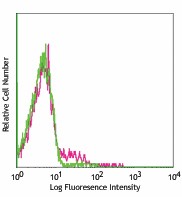
-

LOU rat splenocytes stained with OX-42 FITC
| Cat # | Size | Price | Quantity Check Availability | Save | ||
|---|---|---|---|---|---|---|
| 201805 | 100 µg | 123€ | ||||
The OX-42 antibody reacts with the CR3 complement (C3bi) receptor expressed on monocytes, granulocytes, macrophages, dendritic cells, and NK cells. This antibody appears to recognize a common epitope shared between CD11b and CD11c (integrin αM and αX chains). The OX-42 antibody precipitates three polypeptides with apparent molecular weights of 160, 103, and 95 kD, respectively. This antibody has been shown to block the formation of complement-mediated rosettes and leukocyte migration.
Product DetailsProduct Details
- Verified Reactivity
- Rat
- Antibody Type
- Monoclonal
- Host Species
- Mouse
- Immunogen
- Rat peritoneal macrophages.
- Formulation
- Phosphate-buffered solution, pH 7.2, containing 0.09% sodium azide
- Preparation
- The antibody was purified by affinity chromatography, and conjugated with FITC under optimal conditions.
- Concentration
- 0.5 mg/ml
- Storage & Handling
- The antibody solution should be stored undiluted between 2°C and 8°C, and protected from prolonged exposure to light. Do not freeze.
- Application
-
FC - Quality tested
- Recommended Usage
-
Each lot of this antibody is quality control tested by immunofluorescent staining with flow cytometric analysis. For flow cytometric staining, the suggested use of this reagent is ≤0.25 µg per million cells in 100 µl volume. It is recommended that the reagent be titrated for optimal performance for each application.
- Excitation Laser
-
Blue Laser (488 nm)
- Application Notes
-
Additional reported applications (for the relevant formats) include: immunohistochemistry of acetone-fixed frozen sections1,2, immunoprecipitation3, in vivo and in vitro blocking of C3bi binding3,4.
-
Application References
(PubMed link indicates BioLegend citation) -
- Whiteland JL, et al. 1995. J. Histochem. Cytochem. 43:313. (IHC)
- Milligan CE, et al. 1991. J. Comp. Neurol. 314:125. (IHC)
- Robinson AP, et al. 1986. Immunology 57:239. (Block)
- Issekutz SE, et al. 1992. Immunology 76:655. (Block)
- Muehlbauer SM, et al. Am. J Pathol. 177:735. (FC) PubMed
- Thomas RA. et al. 2009. J Pharmacol Toxicol Methods. 60:263. PubMed
- Takeda Y, et al. 2011. Immunobiology. 216:1094. PubMed
- Furuhashi K, et al. 2013. J Am Soc Nephrol. PubMed
- Cheng HY, et al. 2013. Cytotherapy. 1465:608. PubMed
- Product Citations
-
- RRID
-
AB_313993 (BioLegend Cat. No. 201805)
Antigen Details
- Structure
- Integrin family member
- Distribution
-
Monocytes, granulocytes, macrophages, dendritic cells
- Function
- Receptor for C3bi
- Ligand/Receptor
- Complement C3bi
- Cell Type
- Dendritic cells, Granulocytes, Macrophages, Monocytes
- Biology Area
- Cell Biology, Complement, Costimulatory Molecules, Immunology, Neuroscience, Neuroscience Cell Markers
- Molecular Family
- Adhesion Molecules, CD Molecules
- Antigen References
-
1. Robinson AP, et al. 1986. Immunology 57:239.
2. Barcaly AN. 1981 Immunology 42:593. - Gene ID
- 25021 View all products for this Gene ID 499271 View all products for this Gene ID
- UniProt
- View information about CD11b CD11c on UniProt.org
Related Pages & Pathways
Pages
Related FAQs
Other Formats
View All CD11b/c Reagents Request Custom Conjugation| Description | Clone | Applications |
|---|---|---|
| Purified anti-rat CD11b/c | OX-42 | FC,IHC-F,IP |
| FITC anti-rat CD11b/c | OX-42 | FC |
| PE anti-rat CD11b/c | OX-42 | FC |
| APC anti-rat CD11b/c | OX-42 | FC |
| Biotin anti-rat CD11b/c | OX-42 | FC |
| Alexa Fluor® 488 anti-rat CD11b/c | OX-42 | FC,IHC-F |
| Alexa Fluor® 647 anti-rat CD11b/c | OX-42 | FC,IHC-F |
| PerCP/Cyanine5.5 anti-rat CD11b/c | OX-42 | FC |
| PE/Cyanine7 anti-rat CD11b/c | OX-42 | FC |
Customers Also Purchased
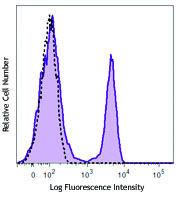
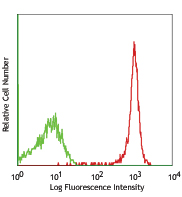
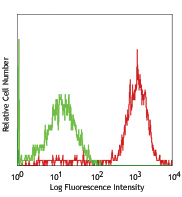
Compare Data Across All Formats
This data display is provided for general comparisons between formats.
Your actual data may vary due to variations in samples, target cells, instruments and their settings, staining conditions, and other factors.
If you need assistance with selecting the best format contact our expert technical support team.
-
Purified anti-rat CD11b/c

LOU rat splenocytes were stained with APC anti-rat CD161 and... -
FITC anti-rat CD11b/c
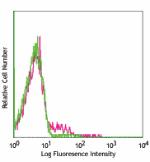
LOU rat splenocytes stained with OX-42 FITC -
PE anti-rat CD11b/c

LOU rat splenocytes were stained with APC anti-rat CD161 and... -
APC anti-rat CD11b/c
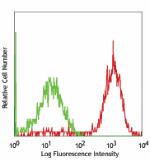
LOU rat bone marrow cells stained with OX-42 APC (gated on m... -
Biotin anti-rat CD11b/c
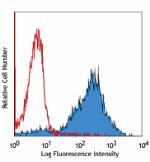
LOU rat bone marrow cells stained with biotinylated OX-42, f... 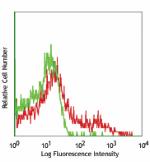
LOU rat splenocytes stained with biotinylated OX-42, followe... -
Alexa Fluor® 488 anti-rat CD11b/c
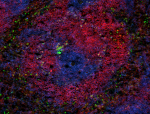
Rat frozen spleen section was fixed with 4% paraformaldehyde... -
Alexa Fluor® 647 anti-rat CD11b/c
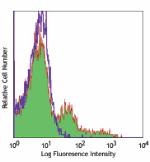
LOU rat splenocytes stained with OX-42 Alexa Fluor® 647 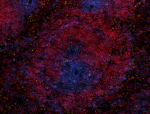
Rat frozen spleen section was fixed with 4% paraformaldehyde... -
PerCP/Cyanine5.5 anti-rat CD11b/c
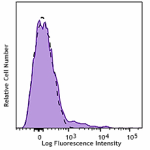
LOU rat splenocytes were stained with CD11b/c (clone OX-42) ... -
PE/Cyanine7 anti-rat CD11b/c
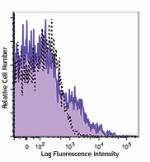
LOU rat splenocytes were stained with CD11b/c (clone OX-42) ...
 Login / Register
Login / Register 










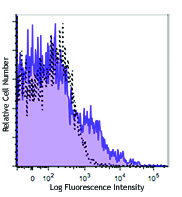



Follow Us